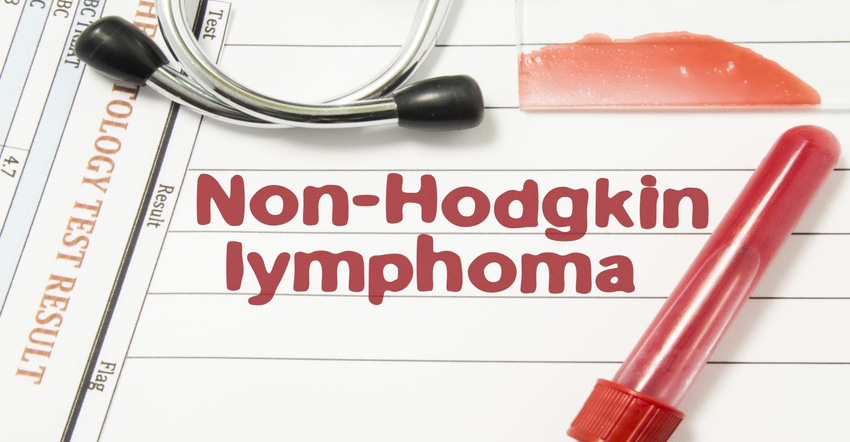Monsanto's Bayer has announced a five-point plan to address litigation after a judge denied a request to nip in the bud potential future lawsuits related to Roundup.

A federal judge this week rejected a request to preliminarily approve a class action settlement involving potential future lawsuits against Bayer’s Monsanto.
Lawsuits have linked Roundup, Monsanto’s herbicide containing glyphosate, to a form of cancer called Non-Hodgkin lymphoma (NHL).
The proposed settlement “would accomplish a lot for Monsanto” but achieve “far less for the Roundup users who have not been diagnosed with NHL—and not nearly as much as the attorneys pushing this deal contend,” U.S. District Judge Vince Chhabria concluded in his May 26 order.
Reaction to Roundup ruling
In response to the ruling, Bayer announced a series of actions to address litigation, including ongoing efforts to settle existing claims and continue appeals. The German conglomerate, which closed its $US63 billion acquisition of Monsanto in 2018, recently disclosed 96,000 claims have either been entirely or nearly resolved “or involve claims that are not eligible,” according to Bayer’s news release describing its five-point plan to address the litigation.
“The court’s decision closes the door on an MDL [multi-district litigation] court-supervised national class solution to manage potential future litigation, which would have been the fairest, most efficient mechanism for all parties,” Bayer said in its news release. “Still, we have legal and commercial options that together will achieve a similar result in mitigating future litigation risk, and we will pursue them as quickly as possible.”
Elizabeth Cabraser, an attorney representing plaintiffs in the multi-district litigation against Monsanto, said the court’s ruling was disappointing.
But “we continue to believe that a multi-billion-dollar class settlement that includes free legal services and substantial compensation to claimants, NHL diagnostic assistance, research into NHL treatment, and Roundup label reform to inform users and the public on all the science regarding a Roundup/NHL link, would provide tremendous financial, health and safety benefits for class members,” Cabraser said in an emailed statement.
Bill Freese, science director at the nonprofit Center for Food Safety, welcomed the court’s rejection of the proposed settlement. The proposed agreement “would leave many Roundup-using victims of non-Hodgkin lymphoma high and dry in order to limit Bayer/Monsanto's liability for their carcinogenic herbicide,” Freese said in a statement.
'Clearly unreasonable' settlement
The proposed settlement would have covered two groups of people: Roundup users diagnosed with NHL but who have not yet sued Bayer; and people who used Roundup before February 2021 but who have not yet been diagnosed with the disease.
Chhabria called the proposed settlement “clearly unreasonable” for the latter group of Roundup users. Under the proposed agreement, people in this group who do not opt out of the settlement would be entitled to two benefits for about four years, including a medical monitoring program intended to increase the odds that people will be diagnosed early with NHL.
Also, people in the second group diagnosed with the disease during the four-year span could make a claim and receive between $10,000 and $60,000, or—in rare circumstances—up to $200,000, according to Chhabria’s order.
But experts for both sides in the multi-district litigation testified “NHL has a long latency period, particularly when caused by something like an herbicide (as opposed to a more jarring intrusion on the body, such as chemotherapy”), Chhabria stated. Citing the expert testimony, Chhabria explained “people can reasonably expect to wait 10 or 15 years after exposure before developing the disease,” and the judge said it’s his understanding physicians generally cannot test patients to detect NHL before the onset of symptoms.
Chhabria also raised concerns about Roundup users’ ability to tap into the compensation fund. The fund is only designed to last four years, and people diagnosed with NHL may exhaust it before then, he noted.
“Since many people in the second group will likely receive their diagnosis more than four years down the line (with or without medical monitoring), they will not be able to request compensation from the fund,” Chhabria wrote.
While Monsanto has the option to add to the fund and extend its duration, it’s not required to do so, he said.
Class members who are diagnosed with NHL could still sue Monsanto if they chose to waive their right to compensation from the fund, or if the fund expired; however, they couldn’t seek punitive damages, the judge noted. Chhabria also shared concerns about effectively notifying people of their right to opt out of a settlement agreement he described as “exceedingly complex.”
“If notice in this situation could ever be adequate, it would need to communicate the settlement’s message very clearly and offer something sufficiently valuable and tangible to make it worth the potential class members’ attention,” Chhabria wrote. “This settlement, and the proposed program for publicizing it, do not come close to accomplishing that. Indeed, for people who have not been diagnosed with NHL, the notice’s message is so garbled that they are likely to ignore it.”
Ongoing disputes over Roundup
Earlier this month, in a 2-to-1 decision, a three-judge panel of the U.S. Court of Appeals for the Ninth Circuit affirmed a lower court’s judgment in favor of Edwin Hardeman, whose case against Monsanto received national media attention.
Hardeman was diagnosed with Non-Hodgkin lymphoma in 2015 and his case is one of about 5,000 in federal court alleging Roundup causes NHL, according to the Ninth Circuit. A jury awarded him more than $80 million, although the district court later reduced the punitive damages award from $75 million to $20 million.
Bayer continues to assert Roundup is safe. As part of its five-point plan to address the litigation, the company disclosed it planned to create and promote a website with scientific studies relevant to the safety of Roundup.
The company quoted a brief filed recently with the Ninth Circuit, in which the Environmental Protection Agency asserted glyphosate “poses no human-health risks of concern.”
“Thus, these actions are being taken exclusively to manage litigation risk and not because of any safety concerns,” Bayer proclaimed in its news release.
About the Author(s)
You May Also Like






